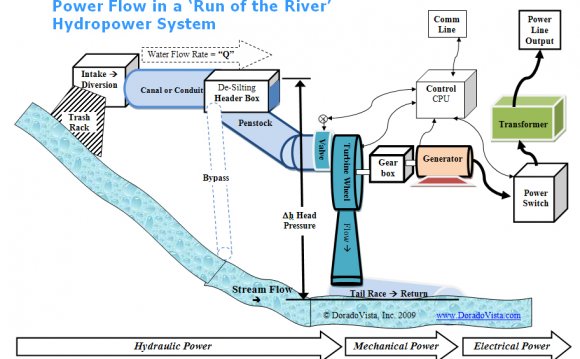
 This is Part 3 of our three-part show on renewable energy solutions.
This is Part 3 of our three-part show on renewable energy solutions.
Dipti Vaghela of this Hydro Empowerment Network.
Switzer Foundation
Dipti Vaghela is passionate about micro hydro.
To be fair, she’s in addition enthusiastic about other mini-grids, including biomass gasifiers and minor solar. But since 2006, Vaghela has-been deep inside weeds about this subject, working as both a researcher and a practitioner to develop community-based small hydro in South and Southeast Asia.
Vaghela’s organization, the Hydropower Empowerment Network, takes a country-by-country approach to rural electrification, helping micro hydro and other technologies just take root in places where electricity is expensive and difficult – or impossible – in the future by.
Micro-hydro means hydropower that creates significantly less than one megawatt of power. It typically produces no reservoir, and it’s usually always power little, remote communities where central grid does not get to.
 the woman objective? To carry electricity in a sustainable and participatory way to locations where want it.
the woman objective? To carry electricity in a sustainable and participatory way to locations where want it.
Why Micro Hydro?
Building micro hydro in Cameroon.
Global Streams
Usually, claims Vaghela, small hydro makes all the difference in little communities that are lacking accessibility electricity. But isn’t solar much easier and quicker to put in?
Vaghela, an old Switzer other which attained a degree in Mechanical Engineering from UC Berkeley, agrees. “For solar power, it is really plug-and-chug. You generate your panels and battery packs, and within a couple of hours, it’s typically done.”
When you are developing micro hydro, states Vaghela, the procedure is much more included. “You have to gauge the water, understand the watershed, discover ways to protect the watershed just before install the micro hydro plant.”
Then there’s the manufacturing. Residents want to develop a tiny check dam and a channel, put the pipelines, and build the powerhouse, the turbine, additionally the transmission line.
 “It usually takes up to a year if you are lucky, ” claims Vaghela. “Sometimes couple of years.”
“It usually takes up to a year if you are lucky, ” claims Vaghela. “Sometimes couple of years.”
Considering the fact that the procedure is so time-intensive, the reason why would a town choose micro hydro over solar? In some methods, Vaghela states, micro hydro has proven to be an even more durable and sustainable method of electrifying villages. I inquired the lady the reason why that was.
Community small hydro in Northeast Asia.
The important thing, she states, lies in neighborhood involvement. In Malaysia, at a center funded by National Geographic, folks have started to build turbines in your area for the first time. “These neighborhood specialists have actually many pride. They really like the job, because they’re able to electrify villages, but they’re not giving up their particular price system to do it.”
“Many individuals say, ‘Why don’t you just get turbines from Oregon or California?’" states Vaghela. "There’s a big change – not only with all the pleasure component, and in that when some thing fails, should they know how to develop it, they actually understand how to look after it.”
This lies in razor-sharp comparison to jobs in which a task is set up without the participation of villagers. I ask the girl how often a government will install an electricity task and never return to check on it to be sure it’s nonetheless working.
 “throughout associated with government programs that have offered free solar, ” claims Vaghela, “it usually occurs.”
“throughout associated with government programs that have offered free solar, ” claims Vaghela, “it usually occurs.”
Install ‘em and then leave ‘em
Because the ‘80s, Vaghela claims the Indian government has actually installed waves of no-cost solar power home lighting – and today they’re installing progressively large systems. “I’ve done a study – which hasn’t been posted however – in thirty villages in India over 3 years. Some had solar power, some had micro hydro, yet others had the grid.”
And how performed they work? Only the small hydro systems, claims Vaghela, was in fact working regularly during the period of the three many years.
It might be appealing to imagine that the issue lies using the solar panels. The problem, but isn’t technological. Instead, it offers to do with exactly how much – or how small – the installers build relationships the individuals getting the system.
Unlike with small hydro, in most solar tasks, residents aren’t offered even fundamental training. Vaghela claims the specialist doesn't have motivation to do this. “They’re certainly not to the work of interacting with the city, ” she states.
The result is a morass of misinformation meaning – sometimes within months – the methods go wrong. Occasionally, individuals stop completing their particular batteries because they require distilled water (which they don’t have) to make them work. In others, they lose force controller simply because they don’t know very well what it will. The lack of information are astonishing: “within one household we decided to go to, ” states Vaghela, “the lady thought the panel would melt if she kept out in the sunlight for too long.”









